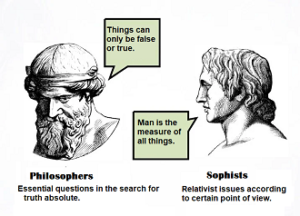
Arquivo para a ‘Linguagens’ Categoria
The salvation of beauty
Harmony and peace have a profound relationship, just look at what countries look like before and after wars, just look at cities and even rivers and forests in a war zone.
just look at what countries look like before and after wars, just look at cities and even rivers and forests in a war zone.
It’s not a question of locking up regions of the planet, through climate and environmental change the impact on all of creation is immediate, because even if we want to live in a bubble, contact with the air, water and riches is impossible to notice.
This also applies to culture and politics. Everything seems to be a reflection of the mistreatment and lack of sensitivity to what is truly beautiful and in harmony.
For Hegel, according to his vision of aesthetics and therefore of beauty, it is science that deals with artistic beauty and not natural beauty. For him, natural beauty is the product of the spirit (Geist), and, being its product, it is part of the truth and of everything that is in nature.
Sculpture is considered a “noble” art, says Hegel: “Sculpture introduces God himself into the objectivity of the external world; thanks to it, individuality manifests itself externally through its spiritual side” (Hegel, 1996, p. 113), again the exterior is objective, a sculpture and not a Being, the other and with him all his subjectivity.
Symbolism, on the other hand, is what “seeks to achieve the union between inner meaning and outer form, that classical art achieved this union in the representation of the substantial individuality that addresses our sensibility, and that romantic art, spiritual by essence, surpassed it” (Hegel, 1996, p. 340).
For the German-Korean philosopher Byung-Chul Han, who wrote Die Errettung des Schönen (The Salvation of Beauty), a new thread runs through the question of beauty, with what he has called in other books the “lack of negativity of our age”.
We are in the age of plastic, glass and the smooth, “imperfection” is part of creation and so it is not the Greek beauty, the new forms that contemporary culture seeks, that we will find a new culture and a creative way of relating to nature.
Subjectivity is confusingly smooth, without interiority and difficulties (Chul-Han’s palliative society), it submits to a simplism that wants to smooth and polish everything, therapies to overcome fear, anguish, even religious worship is repetitive and pure “indoctrination”, readings without any hermeneutics and full of old and outdated exegesis, just as lectures should entertain and not teach, means of communication are confused with their ends (which is para-communication).
Contact with the beauty of nature is changed by its “domination”, “exploitation” and then an attempt is made to restore it by “purifying” the natural with cement, stone and violence, Han gives as an example the art of Jeff Koon, (see photo above) of the art of Jeff Koon (see photo above) of plastic figures “idealized from the inside and the form on the outside.
Han, B.C. (2015) Die Errettung des Schönen (A salvação do Belo), DE: Fischer Verlag.
Hegel, George W. (2001) Cursos de estética. Brazil, São Paulo: Edusp.
Evil and truth
When Augustine of Hippo (354-430 AD)  broke with Manichaeism (the division between good and evil), he became a Christian and, in order to solve his main problem, he saw that evil is the absence of good and therefore the absence of Truth.
broke with Manichaeism (the division between good and evil), he became a Christian and, in order to solve his main problem, he saw that evil is the absence of good and therefore the absence of Truth.
Based on Augustine’s model, evil for Leibniz established the foundations by which a world with evil brings more good and therefore a world without evil is better, in his Monadology he established: “an imperfection in the part may be necessary for a perfection in the whole” and therefore the parts depend on the whole for the (rational) truth as he conceived it.
Leibniz (1646-1716) was influenced by Augustine, and theorized that truth is related to reason: “I understand by reason, not the faculty of reasoning, which can be used well or badly, but the chain of truths which can only produce truths, and one truth cannot be contrary to another”, so from a half-truth a truth cannot emerge, this is the problem of contemporary narratives.
This is the key to establishing the virtues, which are capable of exercising the moral good, and from this stems the public good. The current social problem is not just due to the search for the common good, it is necessary for it to be growing and sustainable for there to be moral virtues.
Thus, there is no justification for theft or small deviations, as biblical wisdom says: “he who is not faithful in little is not faithful in much” (Luke 17:10-11), and a permissive society cannot bear fruit for the construction of the common good and the public good.
The problem of truth, is established by the method in the Phenomenology, the German philosopher Husserl (1859-1938) will say that truth occurs through phenomena that are observable, perceptible and sensitive: “we call this phenomenology”, so truth has a method that can be observed in everything that happens around us.
Moral relativism makes truth something linked to the morals of that group. In the previous post, we recalled that it was first dealt with in Plato’s book Theaetetus, whose central concern was to combat the Sophists and create a true citizenry; in general, the book is a rejection of theses that manifest some form of mixture between reason and sensation.
We need to defend and take a strong stand on the side of the moral good and for this we need fraternal love, but it cannot be separated from the cardinal virtues.
Wisdom and changing course
Among the virtues is wisdom. In times of disconnected narratives and little knowledge, countless sages of half-truths emerge, prophets with impure hands and lives, and there is an audience to applaud them.
disconnected narratives and little knowledge, countless sages of half-truths emerge, prophets with impure hands and lives, and there is an audience to applaud them.
So it is necessary to despise wisdom, to read little, to trivialize what is good and beautiful, to violate even the simplest reasoning about the preservation of life, justice and the dignity that every human being possesses, and it is no coincidence that the word of 2024 was “brainrot”.
Not just because we bombard our brains with bad food, but mainly because we abandon good reading, good culture and the good faith of someone who has really changed course.
The biblical figure who made this radical change of course, and was a wise man with great knowledge of Judaism and Greek culture, is Saul of Tarsus, who was born in this city in Cilicia in the year 5 AD and was initially a great persecutor of Christians, being held responsible for the death of Stephen, the first Christian martyr.
He had a mystical vision of Jesus asking “why are you persecuting him” and was blinded on his way to Damascus (photo). Whether this was a metaphor or not is not the important thing, he was told to go and meet the Christian Ananias, where his sight was restored.
Blindness made him go beyond the limits of Jewish traditions, even with controversies such as the discussion with Peter about circumcision, but the Bible itself reminds us that we have eyes and cores that are uncircumcised (*Dt 10,16) and this explains the blindness of Saul, now transformed into Paul.
He will be important for the change in mentality that leaves the Jewish realm and goes to the Greeks and Romans, without him perhaps Christianity would remain a Jewish sect, and his wisdom deeply influenced Augustine of Hippo and Thomas Aquinas, important thinkers for Christian thought and there is no denying the need for wisdom.
The religion of precepts, which excludes many and doesn’t allow many people to change course, is in rapid decline, and this applies to culture in general, with an urgent need for a spirituality that encourages true asceticism.
It’s not emotions, well-crafted and even elaborate speeches that provoke a “change of route”, but a clear awareness of the human and spiritual needs of our time.
It is not uncommon for those who propose these speeches to call for exclusion, for social disruption and see in this a “prophetism” that cannot be achieved by impure hands.
What is divine is transparent and clear, it comes with serene and clear language, with attitudes that prove a change of course, without example any speech is empty even if it excites and provokes emotions.
*Deuteronomy 10,16: “Circumcise therefore the foreskin of your heart, and be no longer stubborn.”
Ethical, moral and cardinal virtues
Ethics are important for good social interaction and for the proper functioning of human relationships in the social context. They should be the basis for those who today challenge moral relationships and distance them from the cardinal virtues, due to their religious origins.
interaction and for the proper functioning of human relationships in the social context. They should be the basis for those who today challenge moral relationships and distance them from the cardinal virtues, due to their religious origins.
Some principles are considered central to ethics, such as autonomy, beneficence or non-maleficence (speaking badly or bearing false witness) and justice, which should be the basis for good social relations.
In times of moral relativism, political relativism is once again a topic. Perhaps we need to return to classical Greek principles in order to bring some serenity to today’s social debate.
Aristotelian ethics was centered on the pursuit of happiness and human well-being, through virtue (areté) and moral development.
The Greek areté means both virtue and excellence, and Plato and Aristotle’s quest was to form “upstanding” citizens who could strengthen society morally, and overcome politics, which until this time was strongly influenced by the sophists, discursive arguments that favored the powerful regardless of their attitudes.
Relativism was born there, seeking only to justify power through argumentation, and the strong similarity with today’s narratives indicates that some fissure in the political stance is spreading in modern democracy.
The ancient Greeks had to overcome relativism in order to arrive at democracy, they argued that moral values and truths could not be relative to historical and social contexts.
Plato’s Theaetetus is considered to be one of the first texts to address the confrontation between truth and relativism, and it would be great to re-study it for today’s politics, how much relativism !!!
The cardinal virtues must be seen as a complement, without them we will not achieve true fraternity and unity of peoples, love is emptied by the current vulgarization, we have already discussed the English philosopher Philippa Foot (1920-2010) clearly addressed the gap that exists in contemporary morality of the cardinal virtues: courage, prudence and temperance (to be more serene, how much this is lacking today) in addition to justice that is partially addressed.
Without the cardinal virtues we find it difficult to include and live in peace with everyone.
Provisional peace in Israel and difficult in Ukraine
They continue in the footsteps of the Hamas/Israel agreement, on Thursday (01/30), 8 hostages were released, 3 Israelis and 5 Thais, in exchange for 110 Palestinian prisoners. Hamas will release the list of the total number of hostages, but Israel continues to attack Hezbollah positions in Lebanon.
Hamas/Israel agreement, on Thursday (01/30), 8 hostages were released, 3 Israelis and 5 Thais, in exchange for 110 Palestinian prisoners. Hamas will release the list of the total number of hostages, but Israel continues to attack Hezbollah positions in Lebanon.
The press has released few details about peace in Ukraine. It is known that there are movements behind the scenes, and that part of the agreement would be the return of Russian gas to Europe, after penalizing the Russian economy with sanctions, and the supply of gas is one of them, with the recent blockade of the passage of Russian gas through the war territory.
Keith Kellogg, Trump’s envoy to negotiate peace between Ukraine and Russia, said in an interview on Friday (01/31) that the end of the war could happen in months.
There, the tactic has been to bomb Russian refineries inside Russian territory, while Russia destroys Ukraine’s energy sources, remembering that gas is also used in Europe for heating and we are in the middle of winter.
On the diplomatic front, Russia maintains influence in neighboring countries such as Georgia, Serbia (not without protests) and unstable Bulgaria. According to former EU Commissioner Mariya Gabriel, due to corruption, she should have been prime minister, but Dimitar Glavchev took over as interim.
It is unlikely that an agreement will be possible without Ukraine ceding part of its territory to Russia, and the hidden issue in the agreements is the growing provocations, now with Russian ships carrying atomic cargo approaching Norway (photo), which is a NATO member. Although the ship has maintained maritime rules, there is suspicion about its true functions, such as placing equipment that can cut maritime communication cables on the ocean floor.
There are behind-the-scenes conversations; the Trump administration is committed to achieving peace while at the same time continuing to send ammunition to Ukraine, which has begun to attack Russian territory and made the war more intense and escalating.
In last week’s posts, we highlighted the functions of language, and it is no longer neutral language; even international mediating forces are forced to make decisions between the parties in dispute; voices for true peace are muffled in the name of partial narratives.
Language and evil
Human language is as complex as man himself, so without a vision of Being in its complexity (it is onto-logical) and without an accurate understanding of linguistic functions (see previous post) we make the mistake of understanding that the logic coming from media and devices overrides human logic and can “control” reality.
so without a vision of Being in its complexity (it is onto-logical) and without an accurate understanding of linguistic functions (see previous post) we make the mistake of understanding that the logic coming from media and devices overrides human logic and can “control” reality.
Wittgenstein, in his Tractatus Logico-Philosophicus, reinforces the idea that: “language is a garment that disguises thought. And indeed in such a way that one cannot infer from the outer form of the garment the form of the thought clothed in it, because the outer form of the garment has been constituted for purposes entirely different from making the form of the body recognizable” (Wittgenstein, proposition 4002).
This is also true of metalanguage, where the digital media is the garment (not the network, because it is a network of relationships), it is dressed up to omit the purposes for which many people use it, but the problem is not only socio-political, it is also moral and ethical.
This omission in language allows linguistic acts to be carried out with absolute immorality despite “freedom”; it is much more than a simple expression in “clothing”; it is a way of corrupting and destroying core values of the civilizing process.
Separating what is good from what is evil based on the garment is also a tricky task, as one cannot make common mistakes: preventing free expression, discerning the intentions hidden in the “garment” and, above all, to discern the intentions hidden in the “garment” and above all to defend the “foundations” of truth.
Truth is ontological and does not follow common logic, it aims to respect the being, their dignity as a person, the right to basic freedoms and especially the right to life, today under a rather confusing “garb” of rights to death, where war and exclusion are the main ones.
Language itself, as an everyday expression of communication, is being abused and deteriorated more and more every day, to the point of making it difficult to even achieve what was already the achievement of millennia of civilization: communication between two people and in narrative´s time the evil is more present in bad communication.
You can’t separate the evil that lies under the guise of “words” and linguistic use, without paying attention to structural truths that date back millennia in the civilization process: the right to Be (life), the right to freely express one’s ideas and principles, the right to come and go and the right to make choices that don’t harm these rights of each Other.
You don’t get good from evil, and what is present in language must be purified.
Wittgenstein, Ludwig. (2023) Tractatus Logico-Philosophicus. Brazil: Criciúma, SC: Editora Convivium, 1ª. edição eletrônica.
Language functions and A.I.
The functions of language have returned to the discussion due to the structural changes caused by the new media, and it is necessary to separate them didactically to avoid incorrect appropriation of their use in communication, so we have the functions: conative, metalinguistic, phatic, poetic and referential, this classification is due to “Roman Jakobson”, but it is necessary to update it now with the use of A.I. (Artificial Intelligence).
to the discussion due to the structural changes caused by the new media, and it is necessary to separate them didactically to avoid incorrect appropriation of their use in communication, so we have the functions: conative, metalinguistic, phatic, poetic and referential, this classification is due to “Roman Jakobson”, but it is necessary to update it now with the use of A.I. (Artificial Intelligence).
Only the referential function can be understood as the direct function of information, which is present in scientific and didactic texts, with a predominance of direct speech and a focus on the third person with the use of objectivity.
Only in metalinguistics are codes present, so it is only in this function that you can have a sender and receiver, because it essentially depends on a message being coded, that is, as the author of the classification says: “it is the one in which the code explains the code itself, that is, the language explains the language itself” (Jakobson, 2008), but the sender, who is the one who codes, and the receiver, who is the one who decodes, should only be here and not in the other linguistic functions.
So the language of language can be traffic codes, the most diverse legislation, but dictionaries and other tables of synonyms for everyday language shouldn’t be included in these lists, while Morse code and digital codes (ASCII and digital transmission itself, for example) are today the most obvious characteristics of metalanguage, but the transmitter and receiver are still human, except in the case of robots (softbots) and A.I.
So the linguistic framework proposed by Jakobson must be updated and revised, and A.I. has an ethical and civilizational problem in that for the first time in history a code (which is confused with the sender when sending a message) can be non-human.
A.I. corrections have the ethical issue that they can be mistaken for a human sender, and it is necessary to differentiate between them, and the civilizational issue of cooperating with the creation of narratives, but it must be stressed that they predate the use of new media.
Transmitting civilizing messages, whether cultural, religious or social (political in a broader sense), has become a problem due to the impoverishment of language, the abusive use of rhetorical simplifications of truths that must be analyzed in context and without ideological manipulations.
JAKOBSON, R. (2008) Linguística e comunicação. 23.ed. Brazil, São Paulo: Cultrix.
Narrative, language and communication
Korean-German philosopher Byung-Chul Han says: “Today we live in a post-narrative time. Not narrative [Erzählung], but counting [Zählung] determines our lives.” (Han, 2023, p. 48).
says: “Today we live in a post-narrative time. Not narrative [Erzählung], but counting [Zählung] determines our lives.” (Han, 2023, p. 48).
To better understand this sentence, just for didactic purposes we have categorized the literary genre into 3: narrative or epic, lyrical and dramatic, the narrative is linked to the “telling” (zählung) of a story and therefore not should be confused with the actual narratives (Erzählung, in German), see that they are differentiated by the prefix “Er”, so the telling must have a narrator, a plot, the characters in time and space, that is, in a context.
Lyric is also a genre that refers to texts with subjectivity and connotations, they can be in prose or verse, but they are also a different type of storytelling from modern narratives, many authors complain about the lack of poetry, and Heidegger pointed out that this is another function of language.
The dramatic text is also a genre in which acts, scenes, rubrics and lines are presented, so it is part of a theatrical form or a-presentation, in the sense that the presentation is both a telling of a story and its negation, since it involves fiction.
The dispute between nominalists and realists in the lower middle ages (11th to 14th centuries) ended up neglecting the importance of language, but the linguistic turn of the late 19th century brought its importance back to the forefront.
The beginning of modernity is marked by the rupture between the metaphysical function of language and the use of objectivity as a mode of expression, but this is only one of the functions of language. The Russian linguist Roman Jacobson recalls the functions: phatic, poetic, conative and metalinguistic, in which modern codes are inserted, for example: Morse, digital and quantum, where “the code explains the code itself, that is, the language explains the language itself”, and this must be the only context where the concepts of sender/receiver apply.
The linguistic turn occurs in the midst of the crisis of idealist and positivist thinking in modernity: Husserl, Heidegger, Hanna Arendt are fundamental, although they are most remembered: Noam Chomsky, Mikhail Bakhtin, Michel Foucault and Ferdinand de Saussure.
Returning to Byung-Chul Han’s initial quote: “Narrative is the capacity of the spirit to overcome the contingency of the body”, this capacity to overcome the contingency of the body is linked not only to the memory of poetic and conative language, but also to the spiritual meanings and values that modernity has abandoned under the pretext of creating an “objective” vision.
The telling of the stories of peoples, their cultures and religions are thus key factors in overcoming such a dramatic moment in the history of communication, where communication itself, the fruit of millennia of evolution in human culture, seems to be in question.
Proclaiming words, stories and beliefs is a universal right, attempts to prevent these rights is not only a motivation for divisions and hatred, it is fuel for wars.
Society in bubbles
The question of the Other has arisen in philosophy as a result of a self-centered philosophy coming from extreme rationalism, which exploits exacerbated hedonism, utilitarianism as a way of life and economy, in a society of rights without duties, where what goes for me doesn’t go for the Other.
philosophy as a result of a self-centered philosophy coming from extreme rationalism, which exploits exacerbated hedonism, utilitarianism as a way of life and economy, in a society of rights without duties, where what goes for me doesn’t go for the Other.
Philosophical authors such as Paul Ricoeur (cited even by the Pope), Emmanuel Lévinas and Martin Buber, who comes from a Jewish philosophy, speak of this existential emergency that is the relationship with the Other, but our closed circles try to establish narrative half-truths that are only valid for our bubbles.
The essential existential question of who is the Other, Martin Buber, in The I and the Thou, comes to see the most sacred in the Other and the question is, in a way, in Peter Sloterdijk’s Spheres I, where he says that children seem to be born with a kind of “instinct for relationships”? which develops throughout the book the idea that we are not born alone and, therefore, through cooperative work and language, we should socialize, and bring out this inner instinct for the relational.
Sloterdijk rejects the liberal, idealistic principle of Cartesian origin, where the isolated individual seeks his existential reason. He starts from an ontology where the primitive is always Two, but if we include the divine that Buber saw, we are three.
But he’s not so idealistic as to say that these two are fused, we could say using Gadamer’s concept, who sees in the “hermeneutic circle”, a “fusion of horizons”, and so we can think of the individual who comes out of the placenta, which will then be dead, as coming out of their primordial bubble, and finding themselves somewhat separated from their mother.
The pre-modern world had a model, for which this separation was not total, of remaining in subjectivity or intimacy (not the interiority that does not separate), this can be seen in some peoples who planted the placenta like trees, and others, like the Egyptians who made pillows, and in the tombs of the pharaohs were buried with them, as if to remain in the initial existential bubble.
We are thus seen in the self-sufficiency of the liberal model, but this model is also criticized, for example, by Rousseau, who sought an isolated life of non-thinking, see as in the experience of the lake, in his writing of the daydreams of the solitary walker, compatible with his model of the man of the good savage, on which many modern democracies are inspired, Rousseau was the contractualist of the most liberal model.
Even the hope of regaining a “general will”, in a stronger state, where a kind of “national religion” is proclaimed, which today erupts in nationalisms all over the planet, is nothing more than a contemporary vision of a self-sufficient “bubble” of various kinds of social closure in ‘communities’, but with a selfish principle inside, what Sloterdijk calls an “inflated community”, social media are just “means” where these ideas of bubbles are propagated.
Truth and justice will meet
The encounter between truth and justice still challenges most thinkers, Hans-Georg Gadamer, in his book Truth and Method, highlights the two points that are still obstacles to this dichotomy: “The effective exemplarity that the new mechanics had and its triumph for The sciences of the 18th century, highlighted by Newton’s celestial mechanics, continued to be so evident to Helmholtz that he was far from asking what philosophical preconditions had enabled the emergence of this new science in the 18th century. XVII” (Gadamer, 1997, p. 42), and points this out as a result of the Occamist School of Paris.
challenges most thinkers, Hans-Georg Gadamer, in his book Truth and Method, highlights the two points that are still obstacles to this dichotomy: “The effective exemplarity that the new mechanics had and its triumph for The sciences of the 18th century, highlighted by Newton’s celestial mechanics, continued to be so evident to Helmholtz that he was far from asking what philosophical preconditions had enabled the emergence of this new science in the 18th century. XVII” (Gadamer, 1997, p. 42), and points this out as a result of the Occamist School of Paris.
Wiliam Ockham (1276-1347) was a Scottish monk who established the principle of “Ockham’s Razor” which says that between two explanations you should take the more and this reached the studies of the 17th and 18th centuries, and Helmholtz was the one who tried to separate the sciences of nature from their historical derivation, because this way the sciences of the spirit could be worked on.
Gadamer has the merit of unveiling (it is not the unveiling that would be reaching the Truth), when analyzing Dilthey’s historical romanticism: “with regard to this independence of the methods of the sciences of the spirit, Dilthey continues to link it to the ancient “Natura parendo vincitur” “ (Gadamer, 1997, p. 44) and thus Newtonian principles continued to prevail in the “Sciences of the Spirit” and thus the true bases of these sciences remain linked to logicism.
The meaning of the Latin term is “Nature is overcome when giving birth”, it links the natural to the supernatural, and thus ends up denying it, this was Kant’s intention (sapere audi, to dare to know) and which became enshrined in modernity by Hegel: “the real is only an aspect of the ideal”.
In idealism there is no concept of virtue (areté), but of training as a personal discipline, Wilhelm Von Humboldt corrected this: “When we, however, in our language say training, we are referring to something at the same time more intimate , that is, to the nature that comes from the knowledge and feeling of the set of spiritual and moral commitment, to spill harmoniously into sensitivity and character” (Gadamer, 1997, p. 49).
Thus, modernity abolished metaphysics, what is beyond physis (since the Greeks means nature) and the supernatural (that which is above nature, the superno natura).
Thus, in a reductionism of truth, when we seek justice we think it is correct to use half-truths (the means justify the ends) and when we say we defend the Truth, we think it is correct to suppress conditions of human and divine justice to defend it, there is a link between them Justice without Truth is mutilated, Truth without Justice is half-truth
GADAMER, H.G. (1997) Verdade e método. Trad.de Flávio Paulo Meurer. Brazil: Petrópolis, RJ: Vozes.

